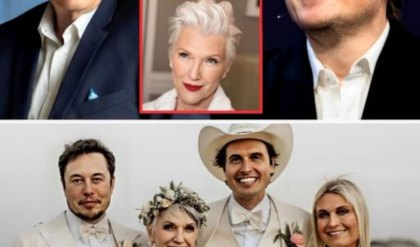Prajakta Koli on Body Image Issues and Social Media Relevance | @MostlySane
In an era where social media dictates the norms of beauty and success, it is essential to navigate these waters carefully, especially for public figures. Prajakta Koli, known to her fans as MostlySane, has garnered a reputation for her relatable content and candid discussions about mental health, body image, and self-acceptance. In a recent episode of the So Positive Podcast, hosted by Ana Pandi, Prajakta delved deep into her experiences with body image issues and the impact of social media on mental health.

The Journey Begins
During the podcast, Prajakta reflected on her journey with body image, noting that her struggles began in her formative years. She shared, “Growing up, I was super, super skinny, and I used to hate myself. It was a very internal process for me.” This internal conflict resonated with many listeners, as body image issues are a common theme that individuals grapple with in their lives. Prajakta’s openness about her past not only humanizes her but also highlights the reality that even those who appear confident can battle self-doubt.
Her first foray into addressing mental health publicly came in 2016 when she created a video for World Mental Health Day that focused on body positivity. The response was overwhelming; thousands of viewers reached out, sharing their own experiences and struggles. Prajakta realized the power of her platform and the importance of fostering a conversation around mental health. She stated, “That’s how I started talking about it. There is so much more to the potential that a YouTube channel has than what I was doing.” This marked a turning point for her channel, leading to more discussions surrounding mental health, body image, and the societal pressures associated with them.
The Importance of Mental Health
One crucial aspect of Prajakta’s narrative is her emphasis on mental health. When asked about her first steps in prioritizing her mental well-being, she mentioned the significance of working out. “For me, it’s so much more mental. After every workout, I am so good; I’m more productive, I’m in a better mood.” This approach underscores a vital point: mental fitness is just as essential as physical fitness, and the two are often intertwined.
Prajakta admitted that while she tries to work out regularly, it is not just about achieving a certain weight or body type but rather about feeling good mentally. “For me, it’s about the mental aspect,” she reiterated, emphasizing that exercise serves as a tool for enhancing her mood and productivity.
Cultural Influences and Mental Health
The stigma around therapy was also addressed. Prajakta noted that many people feel uncomfortable seeking help, fearing judgment or misunderstanding. She encouraged her audience to start small, whether through journaling or finding a therapist who suits them. “If you can find an outlet, it’s nice,” she advised, highlighting the importance of expressing thoughts and feelings, especially during tough times.
Misconceptions and Reality

The conversation also transitioned to the rapid-fire dynamics of social media. Prajakta discussed the importance of curating one’s feed to promote a healthier mindset. “Cleansing my feed has made such a big difference in my life. It’s literally like your diet because you’re consuming so much all the time,” she stated. By muting accounts that don’t contribute positively to her mental health, Prajakta emphasizes that individuals have the power to control what they consume online, ultimately shaping their mood and self-image.
Coping Mechanisms
When discussing coping mechanisms, Prajakta shared her personal strategies for managing anxiety and low moments. “When I’m overthinking, I just take a nap. It solves so many problems,” she said, adding that food, particularly salty snacks like ramen, can be a comfort too. These relatable insights highlight the everyday realities of dealing with mental health challenges, reminding listeners that it’s okay to seek comfort in simple pleasures.
In a light-hearted rapid-fire segment, Prajakta also tackled the concept of angel numbers, a superstition that many find intriguing. Although she admitted she doesn’t fully understand them, her candidness and willingness to engage with various perspectives showcase her open-mindedness. This humor and relatability are part of what makes her so appealing to her audience.
Final Thoughts
Prajakta Koli’s conversation on the So Positive Podcast offers a refreshing take on body image issues, mental health, and the role of social media in shaping our perceptions. By sharing her journey and experiences, she encourages others to prioritize their mental well-being and engage in open conversations about their struggles. Her relatable approach to topics that many find difficult to discuss serves as a reminder that it’s okay to seek help, embrace vulnerability, and celebrate individuality.
As listeners reflect on her insights, they are reminded of the importance of kindness, both to themselves and others. Prajakta’s call to action to check in on friends and family highlights the collective responsibility we all have to foster a supportive environment for one another. In a world where social media often amplifies insecurities, Prajakta Koli stands as a beacon of positivity and self-acceptance, proving that authenticity and vulnerability can lead to meaningful conversations and, ultimately, healing.





